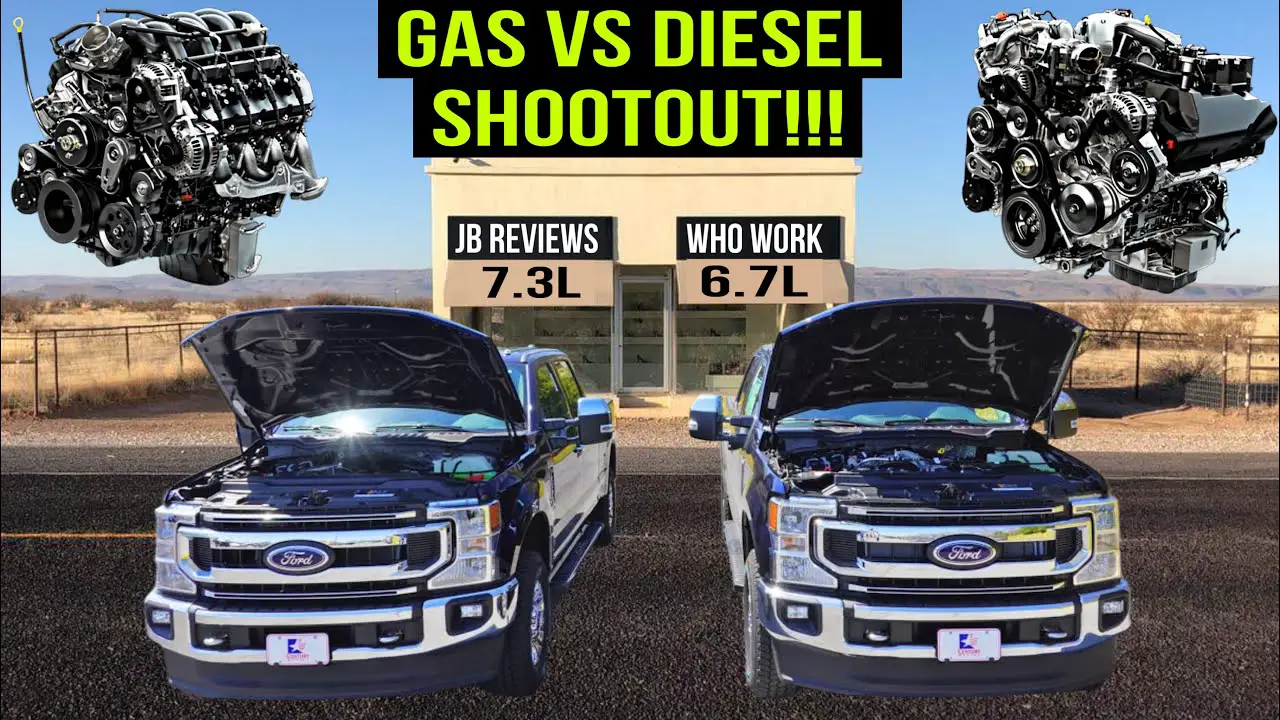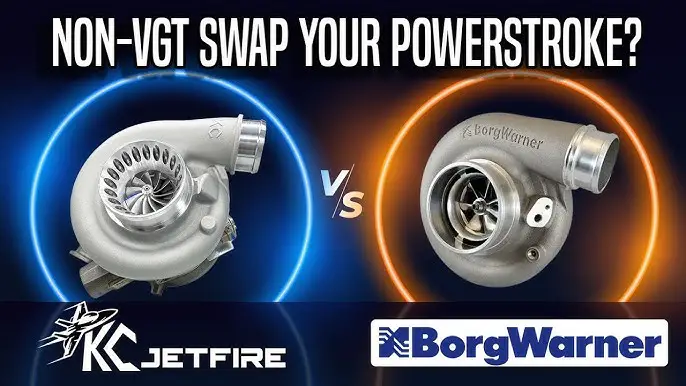7.3L Gas Vs 6.7 Powerstroke: Epic Engine Showdown!
When it comes to choosing a truck engine, many people have questions. The two popular options are the 7.3 L Gas engine and the 6.7 Powerstroke diesel engine. Each engine has its own strengths and weaknesses. This article will help you understand the differences between these two engines. We will look at performance, fuel efficiency, cost, and more.
Overview of the Engines
The 7.3 L Gas engine is a large gasoline engine. It is known for its reliability and power. Many people love this engine for its strong performance. It is often found in Ford trucks.
On the other hand, the 6.7 Powerstroke is a diesel engine. It is also popular in Ford trucks. This engine is famous for its excellent torque and towing capacity. Diesel engines are known for their durability and long life.
Performance Comparison
Performance is one of the most important factors when choosing an engine. Let’s see how these two engines compare.
Power Output
The 7.3 L Gas engine produces around 430 horsepower. It also has a torque rating of about 475 lb-ft. This means it can pull heavy loads with ease.
The 6.7 Powerstroke diesel engine produces more power. It offers about 450 horsepower. Its torque is much higher at 1,050 lb-ft. This makes it better for heavy towing and hauling.
Acceleration And Speed
The 7.3 L Gas engine has quick acceleration. It can go from 0 to 60 mph in a reasonable time. Many drivers enjoy this responsiveness.
The 6.7 Powerstroke also has good acceleration. However, it shines more when towing. It pulls heavy trailers smoothly without losing speed.
Fuel Efficiency
Fuel efficiency is important for many truck owners. Let’s look at how the 7.3 L Gas and 6.7 Powerstroke compare in this area.
7.3 L Gas Engine
The 7.3 L Gas engine is not the best for fuel efficiency. It averages about 10 to 15 miles per gallon. This number can change based on driving habits.
6.7 Powerstroke Diesel Engine
The 6.7 Powerstroke is more efficient. It averages around 15 to 20 miles per gallon. This makes it a better choice for long trips and heavy loads.
Cost of Ownership
When choosing an engine, consider the cost of ownership. This includes the purchase price, maintenance, and fuel costs.
Initial Purchase Price
The 7.3 L Gas engine usually costs less to buy. This makes it a good option for budget-conscious buyers.
The 6.7 Powerstroke may have a higher price tag. However, it offers great value for heavy-duty use.
Maintenance Costs
Maintenance is another important factor. The 7.3 L Gas engine is generally easier to maintain. Parts are often cheaper and more available.
For the 6.7 Powerstroke, maintenance can be more expensive. Diesel engines require special care. But they tend to last longer with proper maintenance.
Towing Capacity
Towing capacity is crucial for many truck owners. Let’s compare how these engines perform in this area.
7.3 L Gas Towing Capacity
The 7.3 L Gas engine can tow up to 10,000 lbs. This is great for smaller trailers and boats.
6.7 Powerstroke Towing Capacity
The 6.7 Powerstroke can tow much more. It can handle up to 35,000 lbs when properly equipped. This makes it ideal for heavy-duty jobs.
Reliability and Longevity
Reliability is key for any engine. Both engines have their strong points.
7.3 L Gas Reliability
The 7.3 L Gas engine is known for its reliability. Many owners report few problems over the years. This engine can last a long time with regular care.
6.7 Powerstroke Reliability
The 6.7 Powerstroke is also reliable. Diesel engines are built to last. They can handle heavy loads and tough conditions.
Driving Experience
The driving experience can be different between these two engines. Each engine offers a unique feel behind the wheel.
7.3 L Gas Driving Experience
Driving a truck with a 7.3 L Gas engine feels powerful. It offers smooth acceleration and good handling. Many drivers enjoy the responsiveness.
6.7 Powerstroke Driving Experience
The 6.7 Powerstroke provides a different experience. It feels strong when towing. It also has a steady ride, even with heavy loads.

Environmental Impact
Many people consider the environment when choosing an engine. Let’s look at how these engines compare.
7.3 L Gas Engine Emissions
The 7.3 L Gas engine produces more emissions than diesel engines. This can be a concern for some buyers.
6.7 Powerstroke Diesel Engine Emissions
The 6.7 Powerstroke has better emissions control. Diesel engines often produce less CO2. However, they can produce more NOx emissions.

Frequently Asked Questions
What Is The Main Difference Between 7.3 L Gas And 6.7 Powerstroke?
The 7. 3 L Gas is a gasoline engine, while the 6. 7 Powerstroke is a diesel engine. They have different fuel types and performance.
Which Engine Has Better Fuel Efficiency?
The 6. 7 Powerstroke usually offers better fuel efficiency than the 7. 3 L Gas engine. Diesel engines tend to be more efficient.
Which Engine Produces More Power?
The 6. 7 Powerstroke typically produces more torque and horsepower than the 7. 3 L Gas engine. This makes it better for heavy towing.
Is Maintenance Different For Each Engine?
Yes, maintenance varies. Diesel engines like the 6. 7 Powerstroke often require different oil and filters compared to the 7. 3 L Gas.
Conclusion
Choosing between the 7.3 L Gas engine and the 6.7 Powerstroke can be tough. Each engine has its own benefits and drawbacks. The 7.3 L Gas engine is great for those who want affordability and reliability. It is also good for light towing and everyday use.
The 6.7 Powerstroke is better for heavy-duty needs. It offers excellent towing capacity and fuel efficiency. If you need to tow heavy loads, this engine is a strong choice.
In the end, consider your needs. Think about what you will use your truck for. This will help you make the best choice between these two engines.





